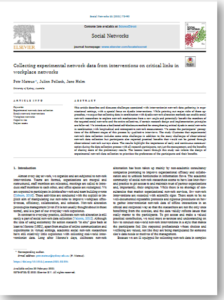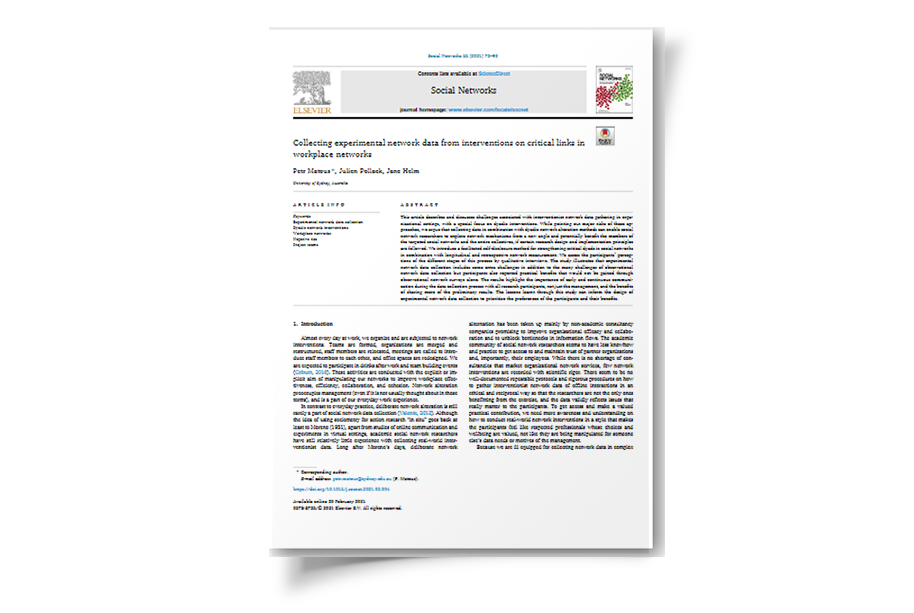Abstract
This article describes and discusses challenges associated with interventionist network data gathering in organizational settings, with a special focus on dyadic interventions. While pointing out major risks of these approaches, we argue that collecting data in combination with dyadic network alteration methods can enable social network researchers to explore network mechanisms from a new angle and potentially benefit the members of the targeted social networks and the entire collectives, if certain research design and implementation principles are followed. We introduce a facilitated self-disclosure method for strengthening critical dyads in social networks in combination with longitudinal and retrospective network measurement. We assess the participants’ perceptions of the different stages of this process by qualitative interviews. The study illustrates that experimental network data collection includes some extra challenges in addition to the many challenges of observational network data collection but participants also reported practical benefits that would not be gained through observational network surveys alone. The results highlight the importance of early and continuous communication during the data collection process with all research participants, not just the management, and the benefits of sharing more of the preliminary results. The lessons learnt through this study can inform the design of experimental network data collection to prioritize the preferences of the participants and their benefits.
Potential Industry Impact
- The paper proposes recommendations for gathering data from social network interventions in business settings.

Authors:
Petr Matous, Julien Pollack, Jane Helm
Journal:
Social Networks, Volume 66, July 2021, Pages 72-90



